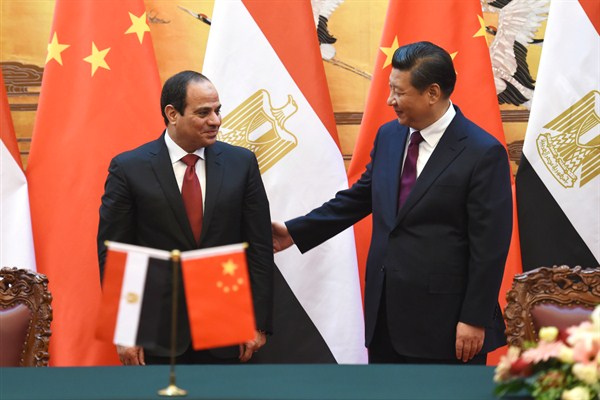Editor’s note: This article is part of an ongoing WPR series about China’s One Belt, One Road infrastructure initiative, also known as the Silk Road Economic Belt and the 21st Century Maritime Silk Road.
China has been a consistent partner for Egypt despite the latter’s years of instability going back to the Arab uprisings of 2011. It should come as no surprise, then, that Egypt is part of Beijing’s ambitious One Belt, One Road initiative. In an email interview, Kyle Haddad-Fonda, an expert on China’s relations with the Arab world, explains how Egypt’s role in OBOR shows that the initiative is not just about infrastructure, and that the potential benefits to China are not merely economic.
WPR: What are the key elements of Egypt’s involvement in the One Belt, One Road initiative, and how does Egypt stand to benefit from OBOR-related investment?

